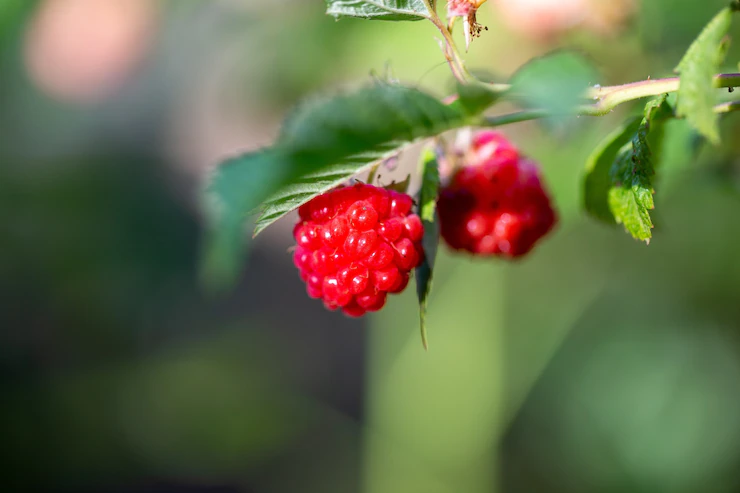When growing raspberries in South Africa, there are several infections and diseases that you should be aware of. Here are some common ones to watch out for:
- Raspberry Cane Blight: This fungal disease affects the canes, causing them to turn brown and die. It is often characterized by purple or black lesions on the canes. To prevent cane blight, it’s important to prune and remove infected canes and ensure good air circulation in the planting area.
- Raspberry Leaf Spot: This fungal disease causes purple spots to develop on the leaves, which can eventually lead to defoliation. To manage leaf spot, you can apply fungicides and practice good sanitation by removing and destroying infected leaves.
- Raspberry Fruit Rot: This disease is caused by various fungi and can lead to the rotting of berries. Infected berries may become discolored, soft, and moldy. Good airflow, proper spacing between plants, and removing infected fruits can help control fruit rot.
- Raspberry Yellow Rust: Yellow rust is a fungal disease that affects the leaves of raspberry plants, causing yellow-orange pustules to form on the undersides. It can weaken the plants and reduce yields. Fungicides may be used to manage the disease, and planting resistant varieties is recommended.
- Raspberry Viruses: Several viruses can infect raspberries, including Raspberry Bushy Dwarf Virus, Raspberry Leaf Curl Virus, and Raspberry Latent Virus. These viruses can cause stunted growth, leaf curling, and reduce fruit quality and yield. Unfortunately, there are no effective treatments for viral infections. Planting virus-free stock and removing infected plants are important preventative measures.
To effectively manage infections and diseases, it is crucial to maintain good plant hygiene, provide proper nutrition and irrigation, and regularly monitor your raspberry plants for any signs of disease. Consulting with local agricultural extension services or horticulture experts in South Africa can provide region-specific advice and guidance on disease management strategies.







